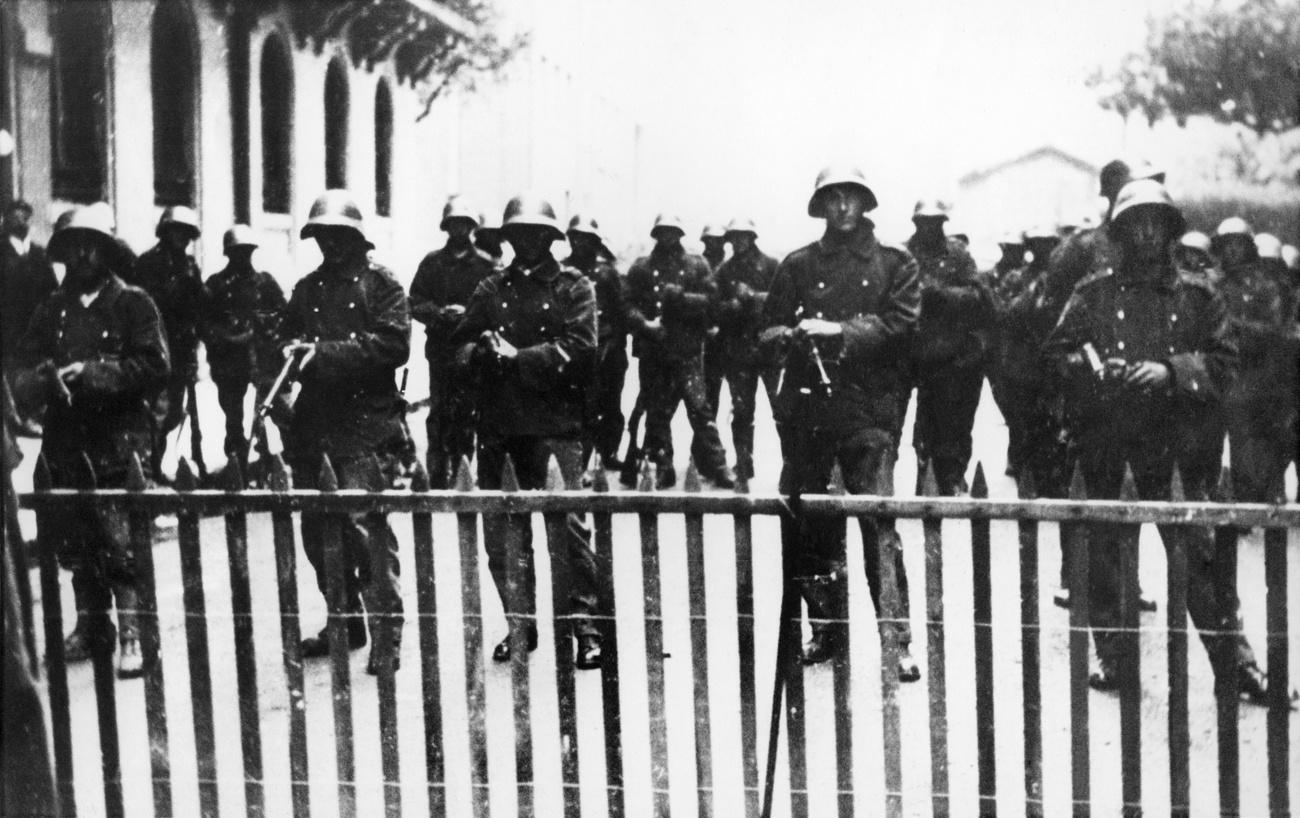No symbolic pardon for anti-fascist protestors in Geneva

Parliament has refused to clear the name of seven people found guilty of rioting nearly 90 years ago. The Swiss militia army opened fire on civilians protesting against a meeting of fascists in the city of Geneva in 1932.
“One shot, aim low, fire!” was the order given by first lieutenant Raymond Burnat to his troops, called in to stop a demonstration by militant left-wing protestors rallying in the Plainpalais neighbourhood of Geneva. The shooting lasted all but 12 seconds (see video below) and left 13 people dead and 65 others injured on November 9, 1932.
The bloody incident occurred when left-wing demonstrators, led by the leader of the local Social Democratic Party, Léon Nicole, took to the streets to protest against a rally of supporters of the far-right politician, Georges Oltramare.
Concerned about a wave of public unrest, the government of canton Geneva asked for support from the Swiss army, to maintain public order.
HistoriansExternal link say the subsequent tragic events were the result of several factors: A group of young soldiers still undergoing military training, inexperienced officers giving a series of inept orders as well as inappropriate military tactics, in the face of a crowd of anti-army demonstrators.
Tensions and trial
Tensions were running high in Geneva back in the 1930s amid the rise of totalitarian regimes in Europe, an economic crisis and increasing unemployment.
In May 1933, a special jury found seven militant left-wingers who had organised the anti-fascist demonstration, guilty of disturbing the public order. They were sentenced to between four and six months in prison.
However, none of the army members had to answer to the justice authorities for their role in the handling of the street protests.
Almost 86 years later, the Swiss parliament has refused to pardon the seven demonstrators. The House of Representatives on Thursday threw out a request by the Geneva cantonal authorities confirming an earlier decision by the Senate.
During the latest debate, opponents of a pardon – mainly on the political right – argued the separation of power had to be respected.
“Parliament should exercise utmost restraint in lifting a verdict by a court,” said Thomas Hefti, a member of the centre-right Radical Party. The court at the time acted according to the rules of the law and the defendants were given the opportunity to plead their case, he added.
Democratic right
Historian Jean BatouExternal link, the author of a book the Geneva shooting, is disappointed about parliament’s refusal to grant a pardon. He says the demonstrators acted in good faith, trying to defend democratic rights against right-wing extremists, only three months before Hitler took power in neighbouring Germany.
“In actual fact, we should be grateful to these people and honour them. They stood up against rising fascism,” Batou said. “It is not about criticising the judges at the time but to say: With historic hindsight, their verdicts were not justified.”
Batou also argues that the interference of the armed forces was unacceptable, and the penalties imposed on the demonstrators were disproportionate.
He points out that the scandal caused headlines not only in Switzerland but also abroad back in the 1930s, notably in the British press, as well as in Portugal under the authoritarian regime of dictator António de Oliverio Salazar.
“In reality the events of those days are a tragic ‘Genevoiserie’ [a local political affair],” he is quoted as saying.
Adapted from French/urs

In compliance with the JTI standards
More: SWI swissinfo.ch certified by the Journalism Trust Initiative










You can find an overview of ongoing debates with our journalists here . Please join us!
If you want to start a conversation about a topic raised in this article or want to report factual errors, email us at english@swissinfo.ch.